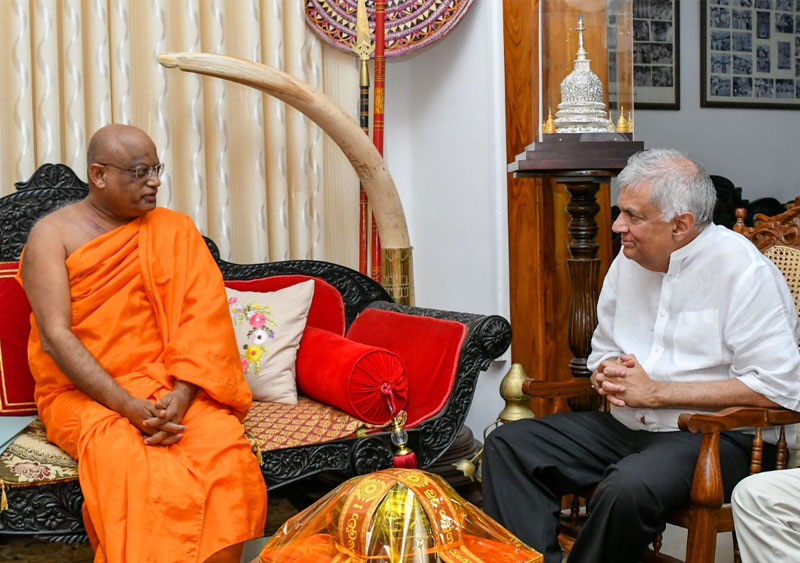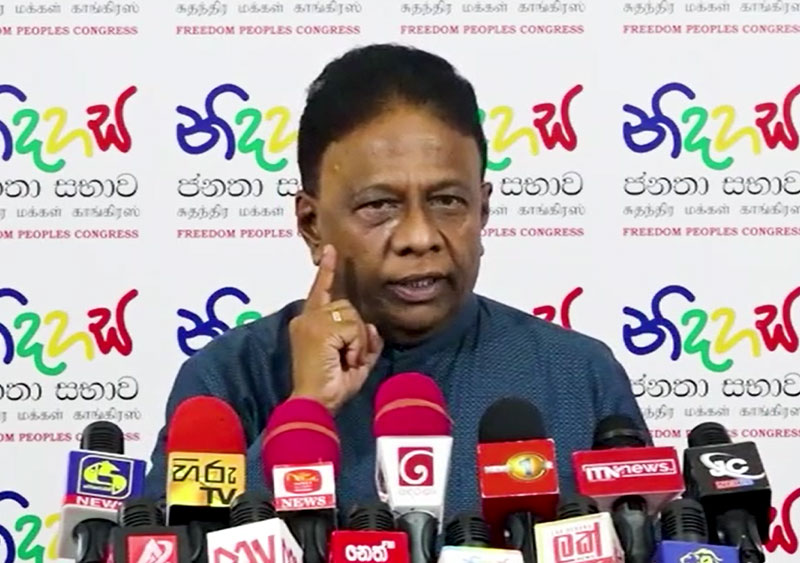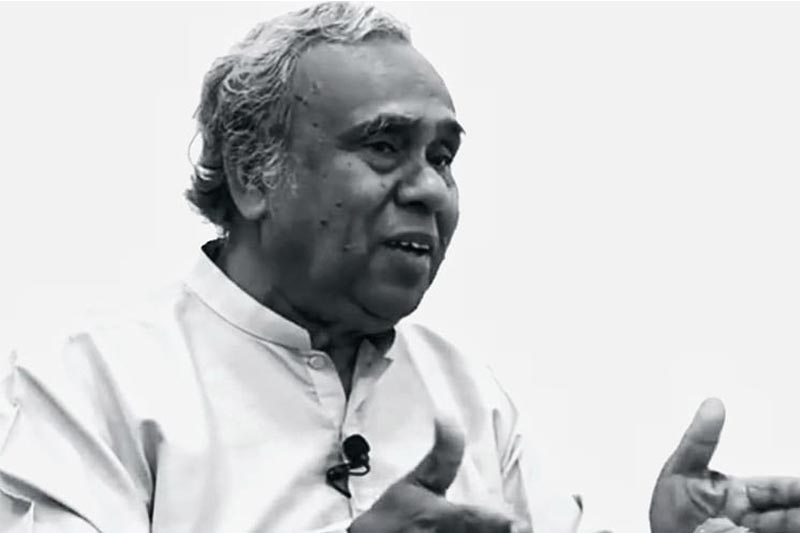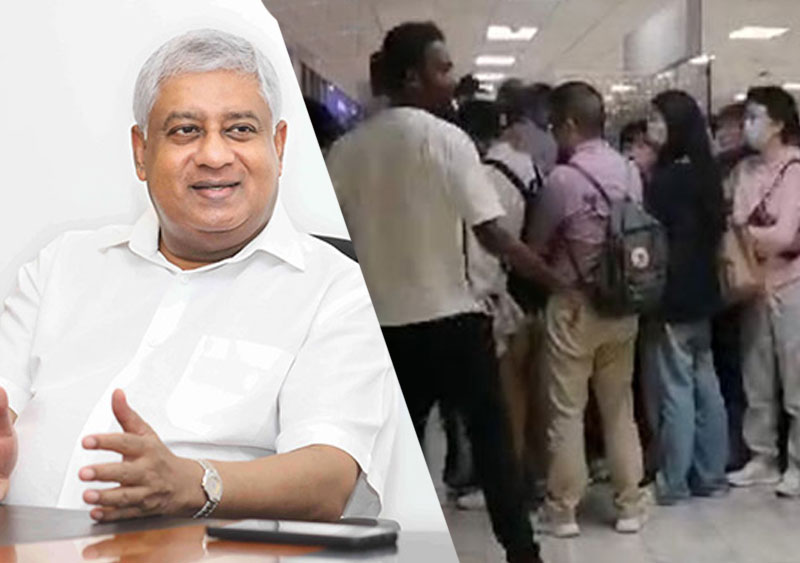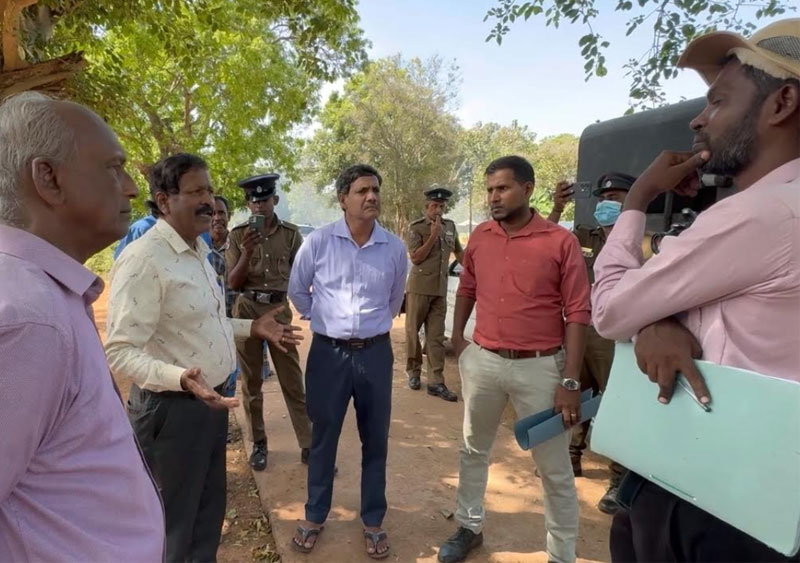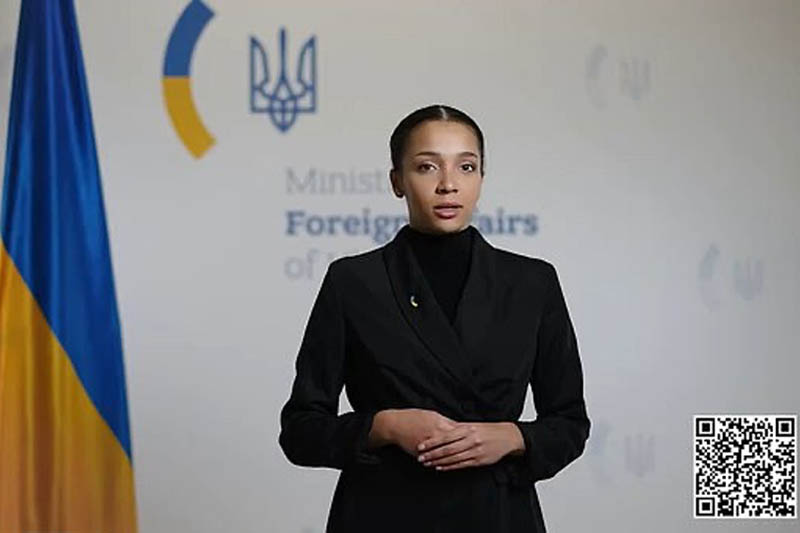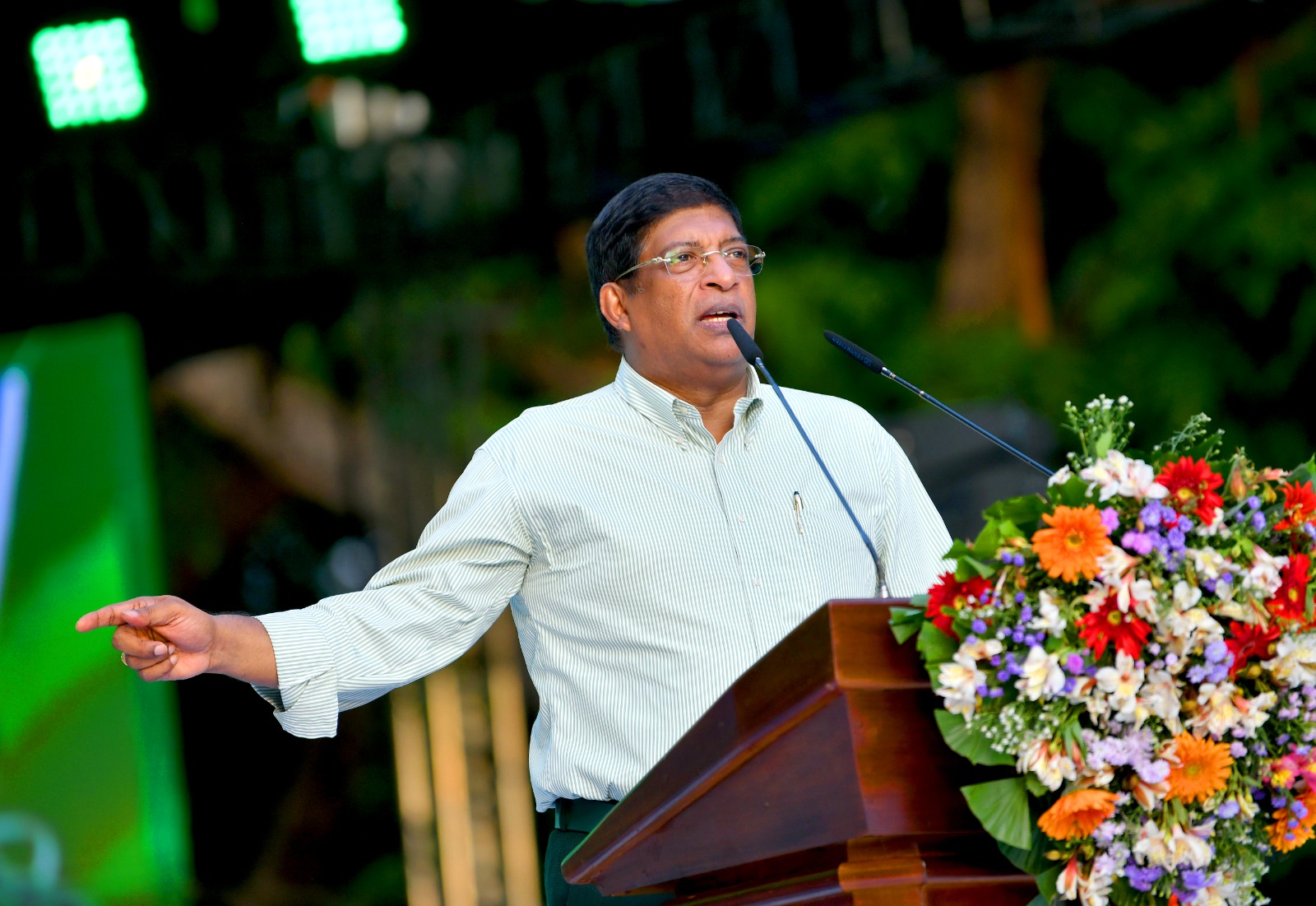The Most Venerable Anunayaka of the Asgiri Chapter Anamaduwe Dhammadassi Thera said that at a time when the country
is facing daunting challenges, President Ranil Wickremesinghe’s significant contributions deserve collective endorsement for the progress of the nation.
The Most Venerable Dhammadassi Thera conveyed that it is lamentable that certain individuals fail to comprehend the President’s endeavours to rejuvenate Sri Lanka in the aftermath of adverse circumstances.
He expressed confidence that the programs initiated by the President for the nation will undoubtedly receive the blessings of the Maha Sangha.
The Anunayake Thera revealed these when President Ranil Wickremesinghe visited the historic city of Kandy.
The President received Blessings from the esteemed Malwatu and Asgiri Maha Nayaka Theras, as well as the Anunayake Theras.
Commencing his visit at the Malwatu Maha Vihara, President Wickremesinghe engaged in a brief dialogue with the Chief Prelate Most Venerable Sri Sumangala Thera.
President Wickremesinghe received blessings and the Theras chanted Seth Pirith and extended their blessings.
Furthermore, President Wickremesinghe visited the Anunayaka Thera of the Malwatu Chapter, the Most Venerable Dimbulkumbure Sri Vimaladhamma Thera, engaging in a brief exchange of thoughts.
Subsequently, President Ranil Wickremesinghe arrived at the Asgiri Maha Viharaya, where he was bestowed with blessings from the Most Venerable Warakagoda Sri Gnanarathana Thera, the Chief Prelate of the Asgiri Chapter.
Venerable Dr. Muruddeniye Sri Dhammarathana Nayaka Thera, the Custodian of the historical Muthiangana Rajamaha Vihara, also graced the occasion.
In the meantime, the President participated in religious ceremonies at the Asgiriya Gedige Raja Maha Viharaya and received blessings.
During his interaction with the Anunayaka of the Asgiri Chapter, the Most Venerable Dhammadassi Thera, President Wickremesinghe shed light on the government’s reform program aimed at revitalizing the nation’s economy, including the agricultural modernization initiative.
Addressing those gathered, the Most Venerable Anamaduwe Dhammadassi Thera stated:
“Your role during this difficult period is paramount for the nation. The country once faced a significant economic downturn, and your efforts in leading its recovery are commendable. You’ve even personally endured losses, including property and your home. Your aptitude to offer solutions to the prevailing issues is noteworthy. We earnestly pray for divine support, safeguarded by the blessings of the Gods, Goddesses and the protection of the Most Sacred Tooth Relic.”
The actions of the former President in safeguarding Buddhist shrines in the Eastern Province via the Defence Secretary were acknowledged. A program was instituted to ensure their protection. Also, photo reports were submitted, however, concerns were raised about the current status of this endeavour.
Additionally, the issue of external interference creating conflicts in the vicinity of the Kurundi Viharaya was highlighted, urging focused attention.
Elaborating his comments, President Ranil Wickremesinghe stated:
“Addressing the country’s economic landscape, we are currently transitioning out of financial turmoil. This revival is being facilitated through the implementation of a foreign debt optimization program and a series of substantial economic reforms.
Presently, local banks are grappling with challenges, leading to restricted access to funds. A significant number of domestic banks find themselves burdened with debt. Should the banking system falter, it could precipitate severe financial repercussions. Moreover, the Central Bank has received liabilities from the Employees Provident Fund. Endeavours are underway to convert these liabilities into long-term bonds. While a marginal disparity in interest rates exists, it bears no detrimental impact on depositors. Notably, an agreement was reached last year to grant a 9 per cent interest to Employees Provident Fund depositors and I am steadfast in my commitment to enshrine this minimum interest rate into law.
Additionally, our efforts encompass the formulation of a new Central Bank Act. This step will pave the way for subsequent negotiations with our creditor nations. Concurrently, we will address personal loans, aspiring to either substantially reduce our debt burden or devise a sustainable repayment plan over the long term.
It is our aspiration to convene discussions and finalize agreements with the International Monetary Fund by the conclusion of September or the onset of October. This accomplishment would signify our emergence from the shackles of bankruptcy, enabling us to engage in economic transactions with renewed ease.
Acknowledging the trade imbalance where imports surpass our exports, we are resolutely charting a course towards cultivating a competitive economic landscape. Central to this endeavour is the establishment of an export-oriented economy.
Indeed, the potential to harvest economic gains through regional competitiveness is tangible. Subsequently, a comprehensive loan payment system is being meticulously devised.
Presently, our nation finds itself in a position that differs from the status it held in 1948. Thus, it becomes imperative for us to gaze toward the future and establish an education system that caters to the evolving needs of our country. I can merely provide the initial spark. The young minds of our land must be prepared to champion this endeavour.
In pursuit of this goal, we must cultivate a leadership culture. This endeavour necessitates a generation equipped with a novel vision and an unwavering drive to progress in tandem with technology. The global discourse revolves around Artificial Intelligence, a topic even touched upon in the teachings of Buddha Dharma. Remarkably, among the Theravada Buddhist countries, no nation has yet fully embraced this emerging paradigm. However, Thailand has forged ahead, serving as an exemplary role model. It is my fervent belief that both Sri Lanka and Thailand should take the lead. In light of this, negotiations for a new trade agreement with Thailand are currently underway.
Consequently, these two Theravada Buddhist nations are poised to join hands economically. I extended an invitation to the Thai government to formalize this agreement in February next year. I also sought the opinion of the esteemed Mahanayake Theras on the possibility of signing this historic pact right here in Kandy. I hold the conviction that this would herald a promising commencement.
Moreover, we have laid out extensive plans for the implementation of an agricultural modernization program. This initiative holds the potential to yield 7 or 8 metric tons of paddy per hectare. In comparison, Australia boasts a production of 10 metric tons per hectare. In regions of our own country, such as Hambantota, we have achieved an impressive yield of 11 metric tons per hectare.
Furthermore, it is crucial to emphasize that these activities are being pursued with a steadfast commitment to upholding the principles of Buddhism. We hold in high regard the protection of all Buddhist shrines, considering it a paramount duty. In this spirit, we have taken measures to address the challenges faced by the Kurundi temple in the Northern Region. Encouragingly, the Sinhalese, Muslim and Tamil communities of that area have united in agreement, pledging not to involve external entities. In times past, this region was characterized by harmonious coexistence among its inhabitants. Regrettably, the introduction of external groups has given rise to these recent complications. I have also communicated this matter to the leader of Vavuniya.
In light of these circumstances, it is imperative that access to this area is restricted exclusively to those within our sphere of influence. To ensure the integrity of our actions, the Department of Archaeology has been directed to conduct a thorough investigation. These actions align with the mandates of the Antiquities Act, underscoring our commitment to preserving our cultural heritage.
Moreover, we are poised to undertake an excavation initiative at the esteemed Maha Viharaya. The on-going excavation efforts in the northern regions continue to yield valuable insights, and these undertakings remain in active progress.
I wish to clarify that the preceding government took prompt action by deploying the armed forces to expedite the excavation process. However, a definitive course of action is still pending, awaiting the decision of the Department of Archaeology. Rest assured, our future steps will be in alignment with the verdict provided by this authoritative body. It is imperative to underscore our unwavering commitment to safeguarding these sacred regions.
Our efforts extend to the safeguarding of all Buddhist shrines. Our approach begins with the identification of archaeological sites of significance. Following this crucial step, a comprehensive investigation ensues. Furthermore, it is crucial to highlight our dedication to addressing any challenges faced by other religious communities in this context.
I must emphatically state that we remain resolute in preventing external entities from instigating disturbances. To foster harmony and prevent potential conflicts, we are actively working towards establishing a committee comprised of esteemed religious leaders from the respective provinces. The collective efforts of these leaders are poised to avert any arising conflicts.
Furthermore, it is worth noting that the Ministry of Buddha Sasana is presently engaged in substantial discussions concerning the development of new legislation pertaining to Buddhism. This significant undertaking has been initiated, a formal communication has been extended by both the Malwathu and Asgiri Chapters. Our focus remains resolute on this endeavour. To ensure a comprehensive perspective, we have proactively solicited input, suggestions and comments from various denominations.
Furthermore, a comprehensive effort has been made to gather insights and recommendations from diverse denominations. This concerted outreach aims to ensure that our approach is comprehensive and reflective of the collective wisdom from a wide range of perspectives.
Even in the pre-independence era, the “Viharagam Dewala Act” was instituted to safeguard the sanctity of the Sacred Dalada Maligawa and facilitate the continuity of these sacred practices. Similar legislative measures existed during the 19th century, underscoring the historical significance of such protective laws.
In accordance with the provisions stipulated in the 13th Amendment of the Constitution, a pivotal amendment to land legislation was ratified two decades ago. With a commitment to enhancing its framework, we have undertaken efforts to revise its composition. To this end, a committee has been appointed, comprising nine representatives, one from each province and twelve individuals holding diverse roles within the central government.
Moreover, we are actively working towards the formulation of a comprehensive national policy pertaining to land use. This strategic framework will pave the way for well-defined guidelines governing land utilization. While we have not introduced any further amendments related to land within this context, we firmly believe that legislative matters concerning land should be addressed at the national level. Subsequently, the implementation of these policies falls under the purview of provincial councils. We are steadfastly committed to maintaining the momentum of this initiative in accordance with the directives set forth by the National Land Commission.
Former Minister Malik Samarawickrama and Additional Secretary to the President Kamal Pushpakumara were also present on this occasion.
(https://www.google.com/url?q=http://presidentsoffice.gov.lk&source=gmail&ust=1693555592487000&usg=AOvVaw0sHYMlQ3hwBpPvfeTaJ1Uh">presidentsoffice.gov.lk)

